Talking to young children about medication safety is not something we think about often. In fact, when we think about prescription medication, we may consider it to be “safe.” However, a prescription may be the most dangerous thing in your home.
In 2018, the National Center on Addiction and Substance Abuse reported a 93% annual increase in unintentional prescription medication exposure among children 5 and under. The report also indicated that 9 of 10 childhood poisonings occur in the home. In addition, poison control centers receive an average of 32 calls a day for children exposed to opioids—60% of those calls are for children under 5 years of age. And, 48% of all pediatric medication exposures are from grandparents’ medications.
As if those statistics weren’t alarming enough, a March 2018 Pediatrics study conducted at 31 children’s hospital (20% of U.S. children’s hospitals) indicated an increase in prescription drug overdoses among children due to access to medications in the home.
- The annual rate of hospitalizations for opioid poisonings in children doubled between 2004 and 2015
- The majority of hospitalizations were for kids between the ages of 12 and 17, children under the age of 6 accounted for a 1/3 of the hospitalizations.
- 20% of kids under 6 were hospitalized after swallowing methadone, an opioid used to treat addiction.
These numbers are why the National Center on Addiction and Substance Abuse, the Federal Drug Administration and others urge that–It’s never too early to explain to children that certain substances are dangerous and not to be touched. At the West Virginia Drug Intervention Institute at the University of Charleston, we agree! Through our Don’t Keep Rex Around™ Medication Safety Program, we teach young children and about the basics of medication safety. However, it’s also key to educate parents, grandparents, and families and make sure our community is aware of how to dispose of medication properly.
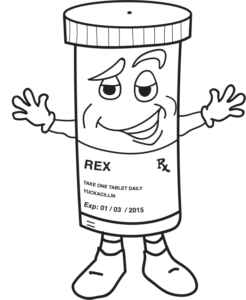 Perhaps your preschooler or kindergartner has already told you about seeing Rex the Rx™ in school. Rex™, a talking cartoon avatar, interacts with children to teach them about the importance of not touching medication without the help of a trusted adult. Children also learn that medications should NEVER be shared—even among family members. With school moved to a virtual environment during the remainder of the year due to COVID-19, we had to get a little creative to get this message out.
Perhaps your preschooler or kindergartner has already told you about seeing Rex the Rx™ in school. Rex™, a talking cartoon avatar, interacts with children to teach them about the importance of not touching medication without the help of a trusted adult. Children also learn that medications should NEVER be shared—even among family members. With school moved to a virtual environment during the remainder of the year due to COVID-19, we had to get a little creative to get this message out.
Last week, we helped spread Rex’s™ message to families across West Virginia, reaching over 40,000 homes with a LIVE interactive broadcast. You can view the recording of that live session at: www.wvdii.org/rex. We are also hosting another live broadcast engage to children (4-8 years of age) and their parents with conversations about medication safety during National Prevention Week. Rex™ will air live on Monday, May 11, 2020 at 3pm on the same site. In addition, we launched a coloring contest for all West Virginia school children in grades pre-k through 2nd to participate and help spread the message about medication safety. Prizes are included for the student winners as well as the schools they attend. A section of the coloring page, requires parents to sign off that 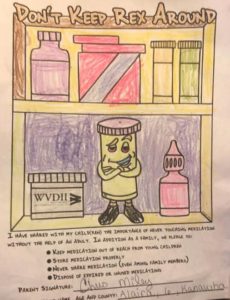 they too, will practice safe medication use. The downloadable coloring page and contest details can be found at: www.wvdii.org.rex. The contest runs through May 30, 2020 and three winners will be chosen randomly on June 1, 2020 to kick off Healthy Kids Month.
they too, will practice safe medication use. The downloadable coloring page and contest details can be found at: www.wvdii.org.rex. The contest runs through May 30, 2020 and three winners will be chosen randomly on June 1, 2020 to kick off Healthy Kids Month.
What we know about our opioid epidemic is that it emerged from some very complex factors—economics, overprescribing, lack of regulation, etc. However, what you may not know is that most persons who abuse opioids started with a prescription and in many cases, that prescription was not their own. Opioids, however, are not our only concern. Data indicates that one of the most widely abused prescriptions among high school and college students is with stimulants and ADHD medications. Teaching children good practices now, can only help them make good choices in the future. Using medication safely and as prescribed is important at any age.
Have medications you need to dispose of because they are not being used or expired? Don’t Keep Rex Around™! Prescription medications should be disposed of not stockpiled if they are not in use. There are number of ways to dispose of medication safely. Do not FLUSH medications down your toilet or dump them down the sink. Medications should be disposed of using a medication disposal system (a small bag that deactivates the pills and can then be discarded in the trash) or taken to a drop off location. To find a trop off location or learn more, visit: https://helpandhopewv.org/disposal.html.
When in doubt following these simple tips for keeping your family medication safe.
- Keep medication out of reach of young children.
- Store medication properly (the medicine cabinet).
- Never share medications (even with family members).
- Dispose of medications properly.
These four steps could save a family member’s life. Talk to your children about medication safety today. And join us live to continue the conversation on May 11, 2020 or visit us on Facebook or via our website,
Questions about the WV DII or Don’t Keep Rex Around™ can be emailed to Dr. Susan Bissett. You can also learn more about Rex™ on their website.

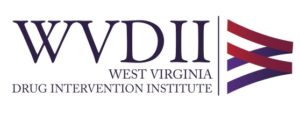

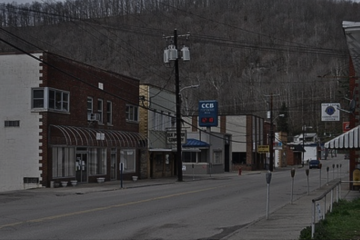
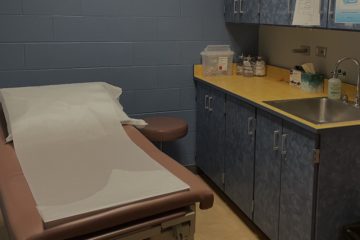
0 Comments